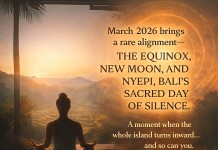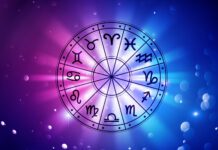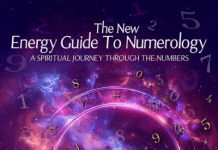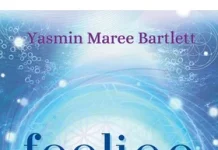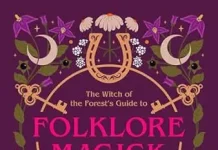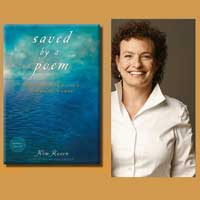
An Interview with Kim Rosen
Author of Saved by a Poem: The Transformative Power of Words
Â
1. What made you write Saved by a Poem?
Poems have saved me so many times that I wanted to pass on the gift. They truly rescued me from a suicidal depression back in 1994. Nothing made any sense to me anymore, except a few lines in Goethe’s “The Holy Longing.â€Â I began repeating them many times a day and something totally unforeseen began to happen. The poem caused huge shifts in my energy. In speaking those words, my thoughts, my heart and my voice were completely aligned with was most important to me.
2. Tell us more about a time when you were saved by a poem.
Oh, there are so many! The one I think of now happened last December, when I lost all my money to Bernard Madoff. He was the guy who was arrested in December of 2008 for the biggest Ponzi scheme in history. Naomi Shihab Nye’s poem, “Kindness,†literally saved my sanity and changed my life—maybe even more than the crisis itself!!
I had just moved my money into this small, local fund that showed incredibly stable returns. It turned out the fund was completely invested with Bernard Madoff. I lost everything.
When I heard the fateful message on my voicemail, all I could think about was this poem. I didn’t choose it. The poem just took over my mind:
Before you know what kindness really is
you must lose things.
Feel the future dissolve in a moment
like salt in a weakened broth.
Of course there were suddenly a thousand things I needed to do —contact my lawyer and my accountant, figure out how I was going to pay the bills I’d accrued when I thought I had money, not to mention rent, food, health insurance—but all I could think of was finding this poem.
When I finally came up with it through a Google Search, I printed it out, sat on the floor and read it aloud.
What you held in your hand,
what you counted and carefully saved,
all this must go . . .
I’d never really gotten this poem before. My students had worked with it. My friends had read it to me. But somehow it had never hit home. Now it felt like the poem had been written for me personally, for this exact moment. It was like having the perfect healer arrive on the scene in the instant of the accident. The poignant wisdom of this poem guided me through a crisis that could have been utterly devastating. It showed me that what was before me was a path to compassion, and I was not walking alone.
The most amazing part of the story is later that day, still clinging to the poem, I went over to the home of the friend who had left me the message. She, too, had just lost all her savings. When she met me at the door, she was waving a piece of paper. It was Nye’s poem. She had been reading it over and over all day since she’d heard the news.
On a less dramatic level, poems often come to my rescue on a daily or even hourly basis. Maybe I wake up frightened or lonely. A poem will appear in my mind, or I’ll randomly open a poetry book before I dive into my day, and that poem will realign me with what really matters, with who I really am.
3. For people who feel they don’t understand or relate to poetry, can this book be for them, too?
First of all, this book is about transformation and coming home to your inner self more than it is about poetry. Poetry just happens to be a direct route to that homecoming. So you don’t have to love poetry to relate to this book. You just need to be curious about how to find and live and give your best self in the world.
A lot of people tell me that they just don’t understand a lot of the poetry they read. I know what they mean. I feel that way with many poems. Yet we sing chants in languages we don’t understand—Hebrew, Latin, Sanskrit—and still we feel the healing effect of the rhythm and sound. Poems can have the same power.
4. So, why is it that poetry has such healing power?
A poem is like a prayer or a hymn or a holy scripture, except it’s nondenominational. If you’ve ever sung sacred songs or repeated prayers or affirmations, you know there are many, many levels of healing that go on. It’s not only the meaning of the words. Sometimes you don’t even know the meaning if you’re reciting Sanskrit or Latin. There is a mystical medicine in the rhythm and in the sounds of the words. There is a physiological response to the beat. There is a way that the interplay of the sounds themselves, like a shaman’s chant, mystically melts the veils between the visible and invisible worlds.Â
Any good poem works inside you in all these ways as well. In fact Socrates, and many other wisdom teachers throughout history, believed that speaking poetry at the threshold of your death would attune your energy with the higher vibrations of spirit, easing the transition. When I turn to a poem in the midst of a moment of panic or despair, I can almost hear the different levels of my being clicking into alignment: my breath deepens, my feelings start flowing, my body relaxes and my mind opens in a kind of “Aha!†experience.
5. Do you give the reader specific ways to apply the poems to their own lives?
Yes. Each chapter of the book describes a different aspect of relationship with a poem, a different angle on how a poem can open you to your true self. I take the reader through the process of choosing a poem, the direct experience of what I call the poem’s “Shamanic Anatomy,†which is the way it uses meaning, rhythm and sound to alter consciousness, and the process of speaking the poem aloud with transparency and passion. There is a chapter about the difference between learning by heart and memorizing a poem. And, my favorite, a chapter on what I call “the Gift of Forgetting,†is about the treasure trove of self-discovery that lies behind each word you forget when you are getting to know your poem. Actually, the most important, valuable part of learning a poem by heart is the places you forget. Because they are calling you beyond the edge of your familiar self.
6. So, how did you come to combine transformational work with the love of poetry?
When I was a very little girl, I was fascinated with the human psyche. I used to go the library of my elementary school and stare for hours at a Time-Life book called The Mind. In about sixth grade, I read Jung’s memoir, Memories Dreams, Reflections and I fell in love with the mystery of what goes on below the surface of a human being. So as an undergrad at Yale, I had three paths. I was a director in the theatre, I was in psychology, and I was also studying religion and spirituality. A lot of people told me I had to choose one focus, but it turns out all three were necessary.
By the age of 22, I had my own theatre company in New York City, was training in various forms of therapy, and was a member of a spiritual community that was very focused on the interface between psychology and spirituality. Drawing on my background in the theatre, I began using music and ceremony to create workshop environments where people felt safe to look within themselves towards the places they’ve been afraid to look—whether towards past wounds or latent powers, visions and gifts. I spent many years acting as a guide, standing with people at that edge between the familiar self and diving off into the soul.
Then, in 1994 when poetry literally saved my life, I began to navigate the territory where poetry and transformation meet. I spent the next decade and a half merging my background as a spiritual guide and workshop leader with my passion for poetry as a path of awakening. I went to grad school at Sarah Lawrence College to get an MFA in poetry. It was then that the three strands of my studies began to interweave to create one braid: poetry, psychology and spirituality.
7. Is there any message you want to leave with your readers?
In this world of iPods and e-mails and spam and traffic jams, the opportunities for fragmentation of awareness are thick and fast. It can be lifesaving to return to a poem that you hold within you. It lives inside you like a sanctuary, like a mosque or a church. Whether you know it by heart or you turn to it on the page, that poem literally does what I believe temples were created to do. It returns you to what matters most. Perhaps it has always been important to return to that holy place where the particles of consciousness organize themselves in alignment with the heart’s wisdom. But it feels to me that in this day and age, it’s even more important.
There is a paradoxical urgency at this time in history to slowing down, focusing on what matters, looking into each other’s eyes and speaking the truth. Poetry is essential to communicating the truth of the heart, the depth of the soul. Whether you are new to poetry, or a lifetime lover of poetry, or a writer of poems, lift the poems off the page and into your living experience. Let them become your teachers and your guides. Let them become your pulse and your breath and your language. Let them emanate out of you, into the space between you and others, through your voice and through the lived wisdom that you are. Your whole being will come into alignment. And that wholeness is contagious. You will touch other people and bring them into resonance with their own souls.
| Saved By A Poem by Kim Rosen (Hay House, RRP $24.95) is available at all leading retailers. Visit www.hayhouse.com.au for more information. |
Â
Â










